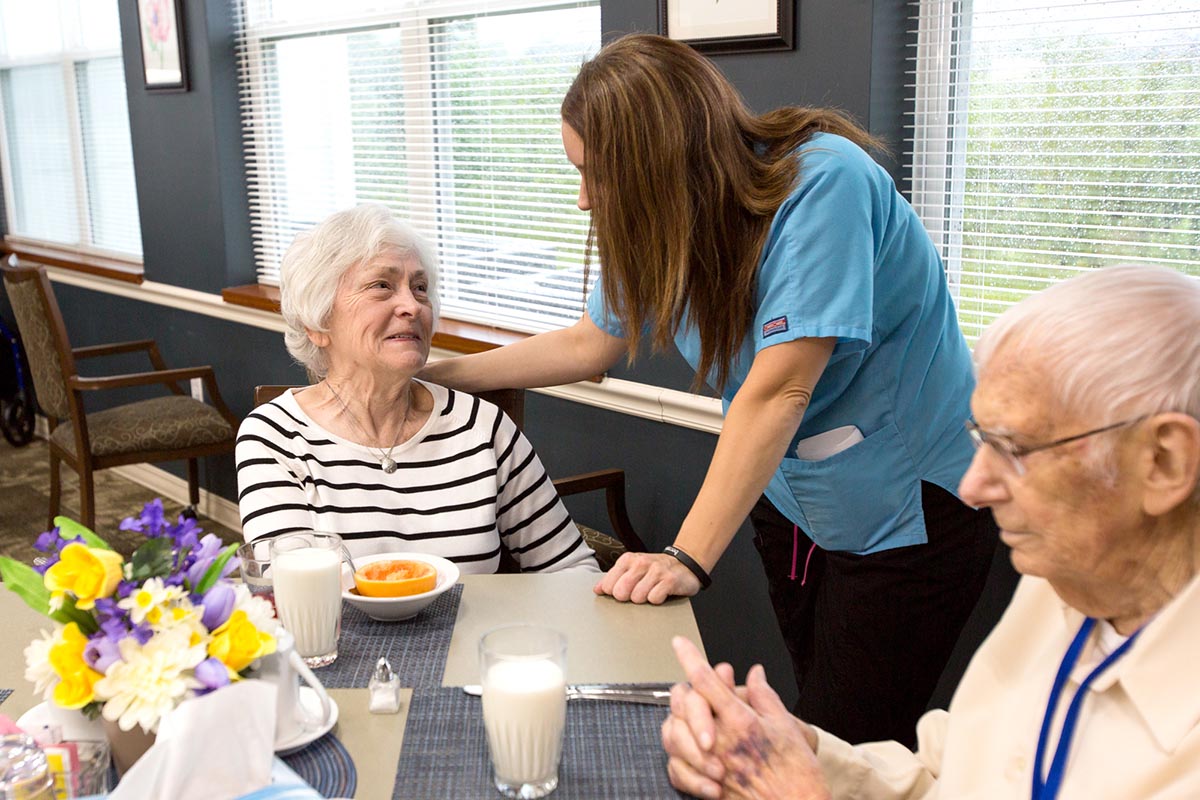
10 Tips For Caring For Seniors With UTIs
What are the best ways to care for someone with a UTI? How can you help manage symptoms? How can you prevent the infection from recurring or getting worse?
If you are caring for a senior with a urinary tract infection (UTI), you may be unsure exactly what you can do to help, but you’ve come to the right place.
Here are ten steps you can take to alleviate their symptoms and prevent the infection from worsening:
1. Remind Them To Drink Water
Encouraging someone with a UTI to drink plenty of fluids will help flush bacteria out of the urinary tract. It’s best to choose water over other beverages, and it’s important to drink at least 64 ounces of water a day.
Consider purchasing a water bottle that clearly labels the fluid ounces. This will help you both track how much water your loved one has been drinking throughout the day.
2. Give Them Medications As Directed
Taking your medications exactly as directed is always important, but for seniors fighting a UTI infection, it’s crucial. UTIs left untreated can lead to serious health complications for seniors like kidney failure or sepsis.
Be sure your loved one is taking their prescribed antibiotics as directed. Finishing the entire course of treatment will ensure that the infection is completely cleared.
3. Help Them To Maintain Proper Hygiene
Infections like UTIs spread through bacteria. Helping seniors maintain proper hygiene means that bacteria will be less likely to enter the urinary tract.
Good hygiene tips include wearing breathable underwear and changing soiled incontinence briefs promptly and frequently. For women, proper hygiene also includes wiping from front to back.
4. Set Timers To Remind Them To Use The Bathroom
UTIs can be caused by holding your bladder too long, so it’s important to remind seniors to use the bathroom regularly and to empty their bladder completely when they do . That will help prevent UTIs before they have the chance to start.
If a senior already has a UTI, using the bathroom frequently will help them to flush any bacteria in their urinary tract. Plus, getting in the habit of using the bathroom often will help prevent UTIs in the future.
5. Plan Nutritious Meals
Practicing good nutrition, including eating a well-balanced diet that is rich in fruits and vegetables, help to keep seniors’ bodies strong to fight infections. Some studies have even linked plant-based diets to a lower risk for developing UTIs.
Meal prepping nutritious snacks and meals for seniors will help them to practice good nutrition.
6. Encourage Them To Stay Active
Did you know constipation can contribute to UTIs? Or that constipation can be prevented by staying active? Helping seniors stay active and encouraging them to move around can help prevent UTIs and relieve strain on the bladder.
Activities like lifting weights, yoga and dancing to music can all be modified to be done while seated. That means that seniors with limited mobility can stay active with low-impact exercises for seniors, too.
7. Avoid Serving Certain Foods
Certain foods and beverages have been proven to irritate the urinary tract which can worsen UTI symptoms. Help seniors to avoid these foods, including caffeine, alcohol and citrus.
8. Ease Pain And Pressure With Heat
If seniors are experiencing pressure or pain in their pelvis, help to reduce these symptoms with a warm compress or heating pad. Be sure not to place the heating pad directly against the senior’s skin and leave it on for no longer than 20 minutes to prevent skin damage.
9. Consider Over-The-Counter Pain Medication
If seniors are experiencing pain or discomfort, you may want to consider giving them over-the-counter pain medication. Medications like acetaminophen or ibuprofen can help alleviate their symptoms.
10. Educate Yourself
Staying educated on the signs, symptoms and unique ways seniors experience UTIs is the first step to recognizing and treating them. Be sure to research UTIs for seniors and lean on health care providers for help.
If the senior’s UTI symptoms do not improve within a few days of starting treatment or if they experience severe symptoms, such as fever, nausea, or vomiting, it is important to contact their health care provider for further evaluation and treatment.
